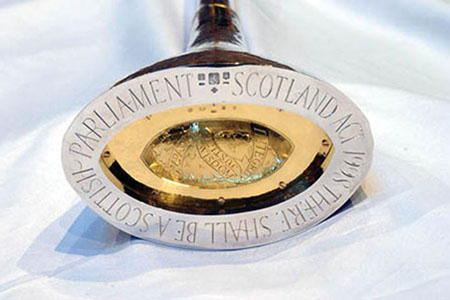1 The Scotland Act 1998
The Scotland Act 1998 (The 1998 Act) established the Scottish Parliament and outlined the law-making process, on what matters laws can be made (devolved matters) and the legislative competence of the Scottish Parliament. The law-making process is explored in week 3. Here you consider on what matters law can be made.

The 1998 Act contained a list of ‘reserved matters’ in Schedule 5. These were matters which were to be reserved for the UK Parliament and on which only the UK Parliament could make law. There was, however, no similar list of devolved matters on which the Scottish Parliament could legislate. It has therefore been established that the matters on which the Scottish Parliament can legislate are, in effect, all those matters that are not ‘reserved’. So, although power is devolved, there are some limitations as the UK Parliament continues to legislate for Scotland on reserved matters.
Box 1 Reserved and Devolved matters under the Scotland Act 1998 (unamended)
| Reserved matters in Schedule 5 of the Scotland Act 1998 (original unamended) include: | Matters on which the Scottish Parliament can legislate under the original unamended Scotland Act 1998 |
|---|---|
constitutional matters | health |
UK foreign policy (including relations with Europe) | education |
| UK defence and national security | local government |
| the fiscal, economic and monetary system | economic development |
| immigration and nationality | tourism |
| energy: electricity, coal, gas and nuclear energy | criminal law |
| common markets | civil law |
| trade and industry, including competition and customer protection | agriculture and food |
| railways, transport safety and regulation | sport and the arts |
| employment legislation | planning |
| social security and child support | social work |
| gambling and the National Lottery | national heritage |
| data protection | training |
| firearms | housing |
| consumer protection | some aspects of transport, including the road network, ports and harbours |
| ordnance survey | law and home affairs (the prosecution system and courts) |
| abortion, human fertilisation, embryology, genetics | the police and fire services |
| xenotransplantation and vivisection | the environment |
| equal opportunities | agriculture, forestry and fishing |
| regulation of activities in outer space | statistics, public registers and records |
The Scottish Parliament has full legislative competence (it can pass both primary and subordinate legislation) in devolved areas (i.e. those matters that are not ‘reserved’).
Since its establishment in 1998 the Scottish Parliament in its law making and powers has influenced the character and style of Scots law in ways in which have resulted in differences from those applicable in England, Wales and Northern Ireland. The possibility of the UK Parliament legislating on devolved matters does, however, exist. This is explored in Weeks 2 and 4.
